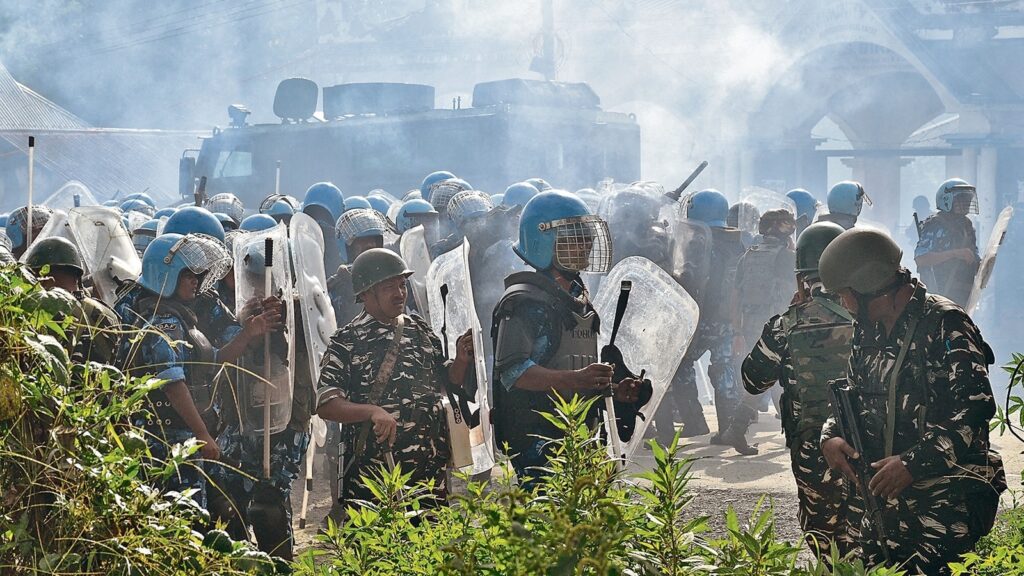In any province in any part of the world, the back-to-back killings of a serving police officer and an Army personnel would evoke feelings of outrage and anger. But if these violent acts come after four months of continuous ethnic bloodshed, where every period of relative lull has only come to be shattered by an even fiercer spurt of clashes, then it should serve as a warning bell and a sign of deep worry — one that the state government would do well to heed. Since May 3, when tensions first flared up between the dominant Meitei and the tribal Kuki groups, there have been several attempts to quell the violence, but all have failed.
The civilian administration appears to have all but melted away in the hinterland, where armed men, sometimes wearing uniforms, appear to have established their writ. They belie claims by the Union and state governments that violence is ebbing in the state and the situation is becoming normal on the ground. This cannot stand. No country can afford to turn a blind eye to a systematic breakdown of law and order in a province for four months, especially if it has taken 175 lives and displaced 50,000 people.
The conundrum in Manipur — that Meitei groups don’t trust Assam Rifles, Kuki groups don’t trust large chunks of Manipur Police, and the working relationship between the two forces appears to be fraught — can only have a political solution, not a securitised one. Such a breakthrough must be urgently sought by the government, and action taken against elements — including those close to the establishment — that continue to widen the trust deficit. Nothing less will staunch the bloodshed.
Embrace independence with quality journalism
Save on HT + The Economist subscription


